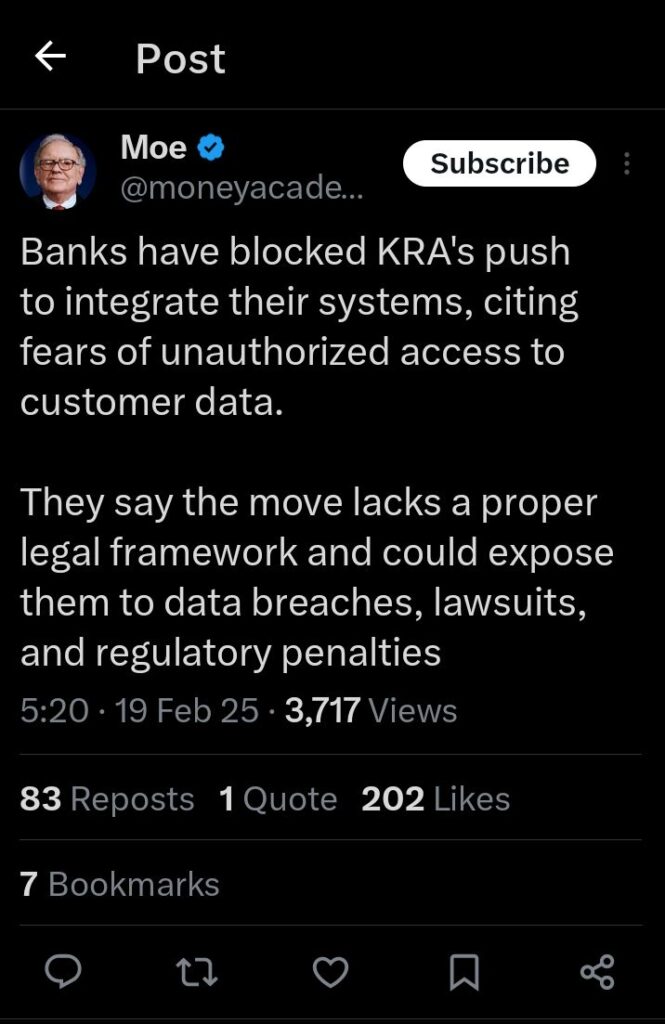The Kenya Revenue Authority (KRA) is facing strong resistance from banks over its plan to integrate their systems for tax collection. Banks have rejected the proposal, saying it could allow unauthorized access to customer data.
They argue that the move lacks a proper legal framework and could put them at risk of data breaches, lawsuits, and regulatory penalties.
The push by KRA to have direct access to banking systems is part of its efforts to boost revenue collection. The tax agency wants to track transactions in real time, claiming that this will help seal loopholes used to evade taxes.
However, banks see this as a major risk that could compromise their customers’ confidential financial information. They believe such integration would give KRA unlimited access to sensitive data, which could be misused or fall into the wrong hands.

Banking industry players say there is no clear law allowing KRA to directly tap into their systems. They warn that implementing this plan without a proper legal foundation could lead to legal battles. If customer data is leaked or misused, affected individuals or businesses could sue the banks, leading to heavy financial losses. There is also the concern that regulators such as the Central Bank of Kenya (CBK) and the Office of the Data Protection Commissioner could penalize banks for failing to safeguard customer information.
Another major issue is the security of banking systems. If KRA is granted direct access, it could create vulnerabilities that hackers might exploit. Banks spend a lot of money to ensure their systems are secure, and any weak link could expose them to cyberattacks. The fear is that if unauthorized persons gain access through KRA’s system, it could lead to massive financial fraud.
Some bank officials say that even if KRA’s intentions are good, the risks are too high to ignore. This standoff is likely to complicate KRA’s efforts to widen the tax net. The agency has been under pressure to increase revenue collection, and one of its strategies is to monitor financial transactions more closely.
But with banks refusing to cooperate, KRA may have to explore other ways of tracking tax evasion. Some experts suggest that instead of forcing system integration, KRA should strengthen its existing data-sharing agreements with banks. This could allow the tax agency to get the information it needs without compromising customer privacy.

Many people are worried that if KRA gets access to banking systems, it could lead to unnecessary monitoring of their financial activities.
Some fear that this could be used as a tool for harassment, especially if tax officials decide to target certain individuals or businesses unfairly. There is also concern that such a move could reduce trust in the banking sector. If customers feel their data is not safe, they might start withdrawing large amounts of cash to avoid digital transactions, which could affect banking operations.
For now, banks have made it clear that they will not allow system integration without strong legal backing. KRA will have to either negotiate with them or push for changes in the law to get what it wants. However, given the legal and security risks involved, it is unlikely that banks will soften their stance anytime soon.





















Add Comment